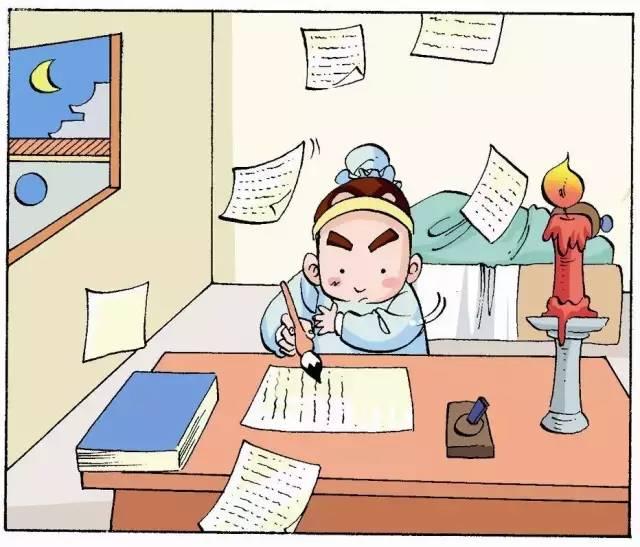By Tom McGregor, CCTV.com Panview Opinion Page commentator and editor
In the imperial age of ancient China, many families had aspired for their children to work as government officials, which meant a good salary and benefits; but to rise to officialdom all applicants were required to pass a rigorous exam.
Many prospective candidates spent years at home buried in books to study for nearly every waking moment. Accordingly, there were some serious drawbacks.

Some diligent students had dedicated so much time studying they stopped talking to family and friends. They refused to learn other job skills.
In bookworm isolation, they lost touch with the real world, but if promoted as a government official they were expected to resolve real world problems by cooperating with others.
Although China no longer lives in the imperial age, many Chinese families believe their children can only succeed if they achieve high-ranking test scores.
China’s youth generation has been discouraged from enrolling in vocational education programs where they can receive training and certification to work in gray-collar jobs.
Need for vocational training
The Chinese cultural attitude that frowns upon vocational training could prove disastrous for the nation’s economic future. With the world’s most populous country, over 1.3 billion people, and the second-biggest economy, China has to pursue a sustainable development path.
The country wishes to maintain full-employment status for the working-age population.
Yet, many factories that had hired low-skilled workers are moving out and setting up shop in Southeast Asia and Africa markets where labor costs are lower.
Millions of low-skilled Chinese workers are finding it more difficult to get new jobs and they need to sign up for programs that teach trade skills, such as building construction & maintenance, auto repair, as well as appliance repairs.
Low-skilled adult workers have high motivation to receive training, but many Chinese parents are discouraging their children to enroll and urge them to attend academic universities instead.
Cultural clash to resolve
Chinese parents, particularly those residing in metropolitan areas, believe their children can only get a good job if they are high-academic achievers. The parents define good jobs as: civil servants, white-collar workers or entrepreneurs.
If a job makes your hands dirty, they perceive it as lowly employment. For the past few decades in Japan and South Korea, most families focused on a child’s education to enroll them at a university and to work in a white-collar job.
Yet, it’s foolhardy for an entire society to assume every citizen has the right to work in an office. Who will build the buildings? Fix the cars? Do the plumbing?
South Korea and Japan’s intense education system has led to the highest suicide rates in the world among teenagers. Schools had transformed into urban jungles where only the best students could survive.
Finding the right job
An education system that discourages trade skills training will place many students in angst and alienation. Not everyone feels happy to work in an office.
Some people like to work with their hands and get restless if they have to sit for lengthy periods of time at a desk. They can succeed in the blue-collar field but need parental support.
Hi-tech job skills can lead to lucrative careers. More Chinese are buying cars and auto mechanics are in greater need. In the United States, auto mechanics generally earn high salaries. The same can be said for plumbers, electricians and appliances repairmen.
The jobs require proper certification and training, which can be received at officially-recognized trade schools where students learn by doing to prove they can accomplish required tasks.
The certificate is a ticket to higher paying jobs for a low-skilled worker.
Rural communities benefit most
The biggest beneficiaries of more enhanced nationwide vocational education programs would be rural residents and migrant workers, who flee farming villages to work in China’s big cities.
Vocational schools and colleges can serve a useful role in China’s Belt & Road initiative as well, especially in Western China.
CCTV.com Panview Opinion Page had taken a two-week reporting tour of Fufeng County in western China’s Shaanxi Province during the Spring Festival family reunion time.
Local economic conditions have improved compared to visits in prior years, but the manufacturing sector appears non-existent in the region. Beijing should consider outlining plans to open up more vocational schools there.
Poor farming families want a better life for their children, but would not feel disappointed if their children were hired in blue-collar jobs if they can earn a decent salary.
On a cultural level, the best places to open up vocational education programs would be in the rural region where they can be appreciated most of all.
(The opinions expressed here do not necessarily reflect the opinions of Panview or CCTV.com)

Panview offers a new window of understanding the world as well as China through the views, opinions, and analysis of experts. We also welcome outside submissions, so feel free to send in your own editorials to "globalopinion@vip.cntv.cn" for consideration.















